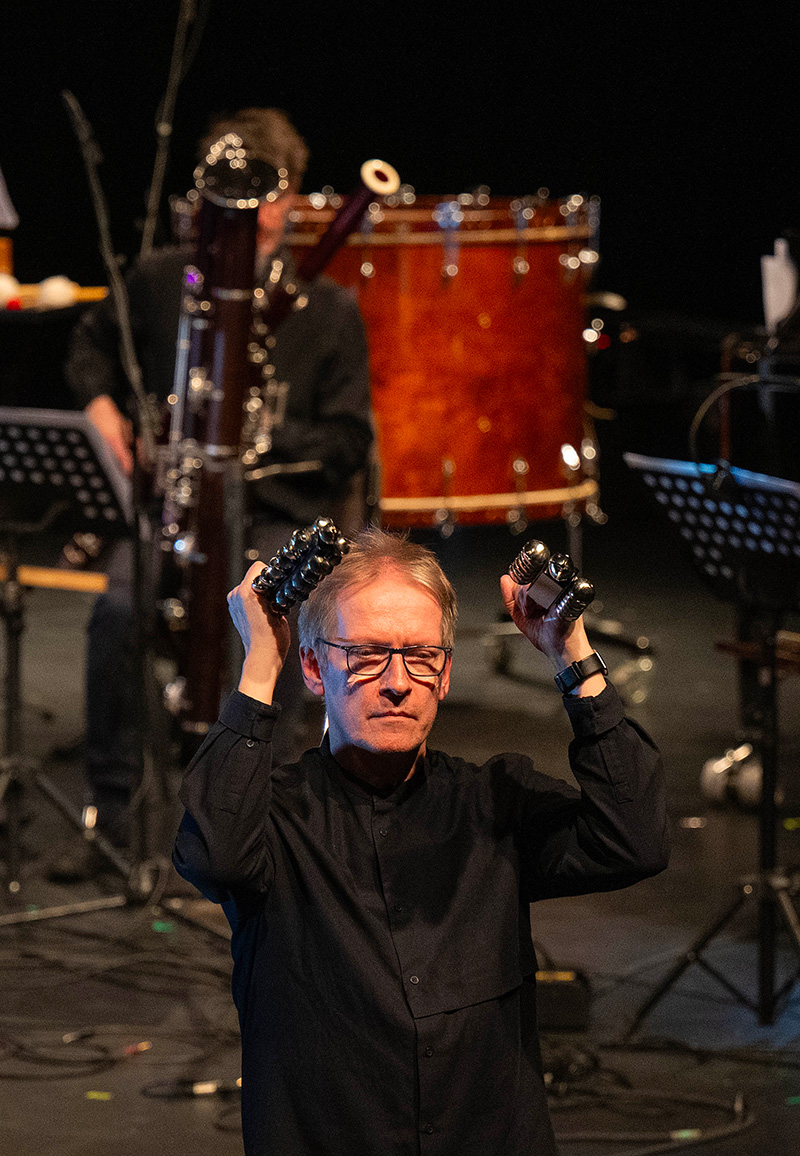Prague Offspring: Ensemble Modern II
The concert is financially supported by the Deutsch-tschechischer Zukunftsfond.
George Benjamin unfortunately is indisposed and has had to withdraw from this engagement. Franck Ollu will take over the conducting duties from George Benjamin. However, George Benjamin will participate in the conversation with Josef Třeštík via video call on May 30.
In addition, Helena Rasker will be stepping in for Krisztina Szabó, who is unfortunately also indisposed.
Programme
- Oliver Knussen: Songs without Voices
- Slavomír Hořínka: Grain, Chaff and Fire (world premiere of a work commissioned by the Prague Spring)
- George Benjamin: Into the Little Hill
Performers
- Ensemble Modern
- Franck Ollu – conductor
- Jennifer France – soprano
- Helena Rasker – mezzo-soprano
On the second Ensemble Modern performance, the work of British composer Oliver Knussen (1952–2018) will be presented following by the world premiere of a new piece by Czech composer Slavomír Hořínka (*1980). The Prague Offspring two-days programme will peak at a concert performance of the first opera by this year’s composer-in-residence, George Benjamin, Into the Little Hill, based on the old German legend about the ratcatcher (Pied Piper) and his pipe. “Ensemble Modern – the ultimate precision machine – gave every sound a charge and brilliance of its own,” wrote the leading music website bachtrack.com after one of the ensemble’s concerts with George Benjamin.
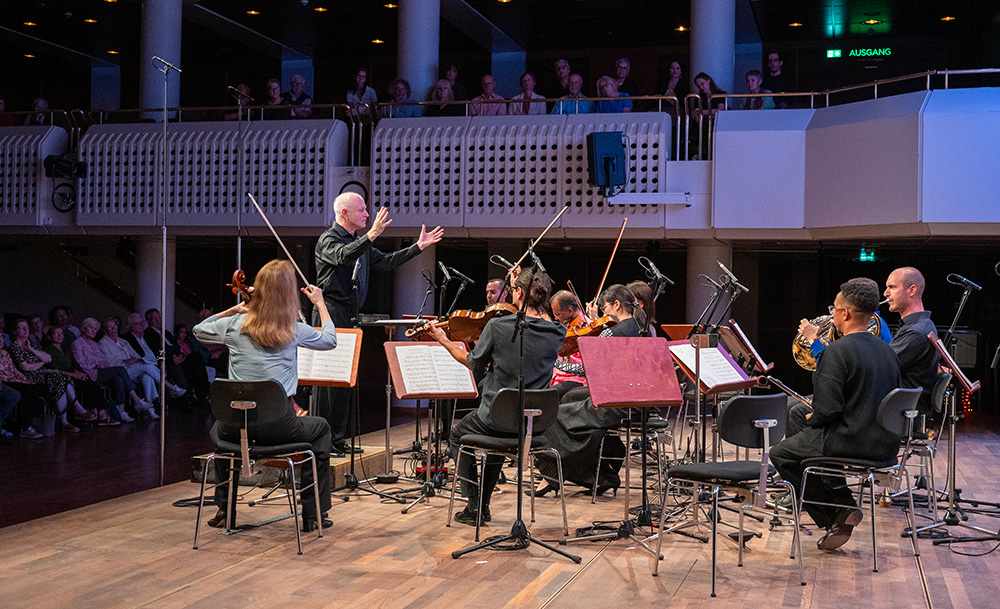
The programme will open with the cycle of four miniatures Songs without Voices by Oliver Knussen. “I recovered an old enthusiasm for writing songs, and it occurred to me to try to apply this to the instrumental sphere,” wrote Knussen, a composer, conductor and beloved mentor of several generations of British composers. The vocal parts are replaced by instruments, here most eloquently by the cor anglais, whose “song” Knussen wrote upon hearing of the death of composer Andrzej Panufnik.
This will be followed by the world premiere of a new work commissioned by the Prague Spring from Slavomír Hořínka. The composer gave it the title Grain, Chaff and Fire (Zrno, plevy a oheň). He was inspired by biblical parables and the ideas of French religious thinker Teilhard de Chardin, whose theses combined a scientific perspective and Christian spirituality. Almost thirty minutes in length, the composition was written expressly for Ensemble Modern; it works with microintervals and also takes its inspiration from fire, which could serve both as a sound model and as a metaphor.
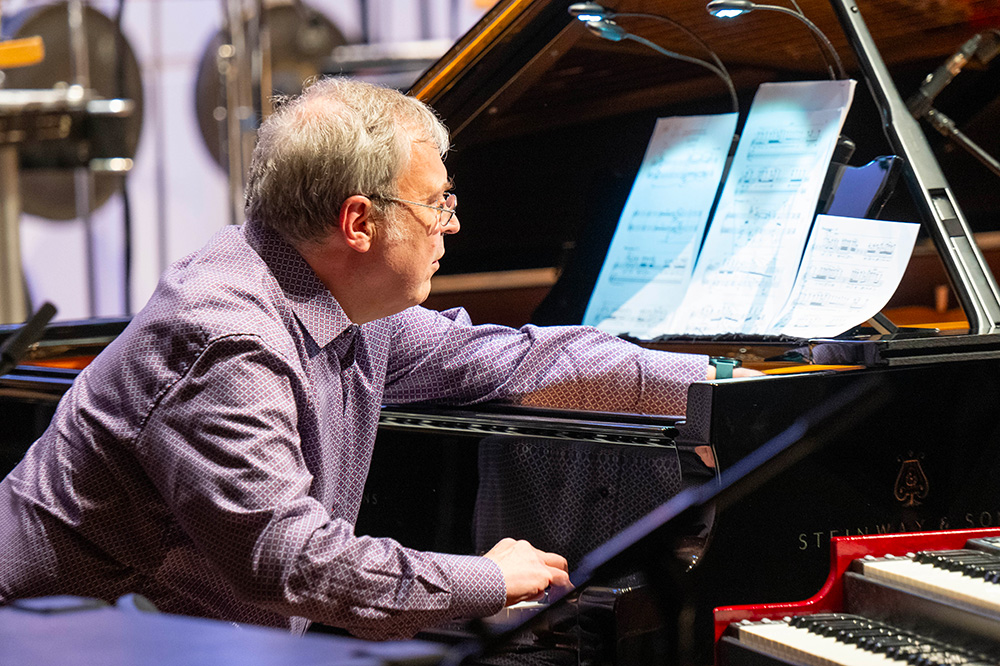
The evening will conclude with Benjamin’s first opera Into the Little Hill from 2006, which represented a breakthrough in his composition work and was at the same time his first collaboration with the playwright and librettist Martin Crimp. The opera is a modern retelling of the medieval German legend set in the town of Hamelin, which was also treated by Czech writer Viktor Dyk in his novella Krysař (Ratcatcher). The opera begins with the townsfolk calling out for the extermination of the rats. In order to ensure his re-election, the mayor hires a ratcatcher (pied piper), who uses his pipe to lure all the rats from the town. The mayor is duly re-elected, but when he refuses to pay the ratcatcher the full sum, all the children suddenly disappear from the town as well. The ratcatcher has led them all away like the rats before them, taking the children up “into the little hill”. The ratcatcher’s pipe is rendered by the bass flute, while we will also hear other instruments in the ensemble that are less common, such as the banjo, cimbalom or basset horns.
The one-act chamber opera was commissioned by the Festival d’Automne à Paris for Ensemble Modern and since its genesis it has seen more than a hundred productions worldwide. The story’s interpretation remains open; Benjamin himself states that, although this is an old legend, the text of Into the Little Hill “evokes disturbing contemporary resonances and also reflects upon the power of music”. The somewhat abstract nature of the tale is underlined by the fact that all the roles are shared between just two singers. In Prague these roles will be sung by British soprano Jennifer France and Dutch contralto Helena Rasker. Jennifer France has given guest appearances at the Bavarian State Opera, the Royal Opera House in Covent Garden, the Salzburg Festival and the BBC Proms. The website WhatsOnStage.com described the singer as the “living jewel in opera’s crown”. Helena Rasker has enjoyed a glowing international career with a repertoire that ranges from baroque to contemporary music. She has performed at Zurich Opera House, Théâtre des Champs-Elysées, Theater Basel, Staatsoper Berlin, English National Opera, the Salzburger Festspiele and elsewhere.
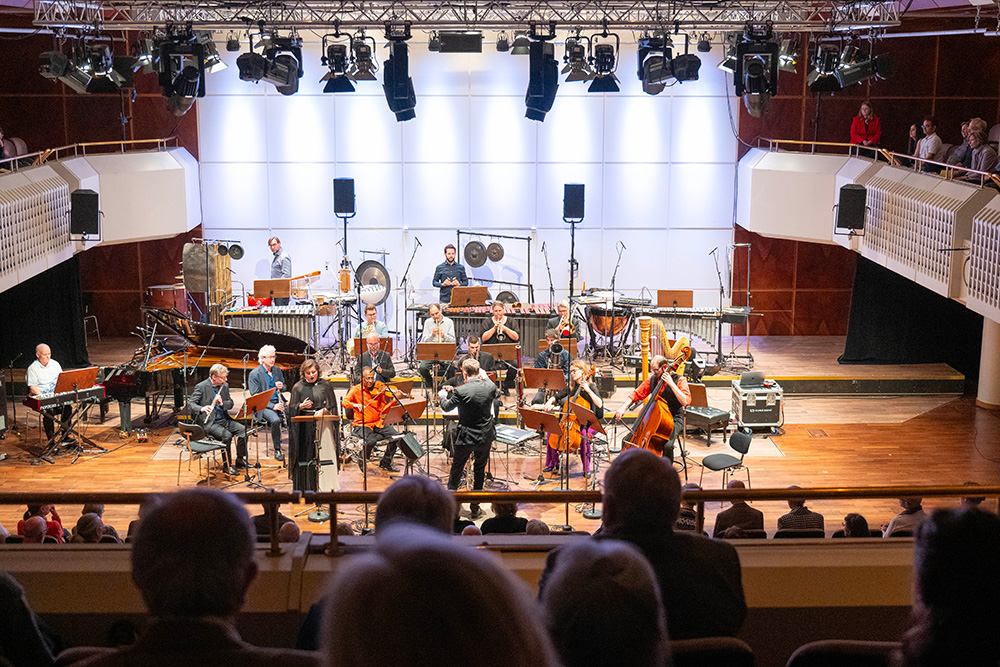
Sir George Benjamin (*1960) began playing the piano at the age of seven and very soon started writing his own music as well. When he was only sixteen he was accepted at the Paris Conservatoire, where he studied composition with Olivier Messiaen and piano with Messiaen’s wife Yvonne Loriod. His first orchestral piece was performed at the BBC Proms when he was twenty years of age. As a conductor he has given the premieres of numerous new works by composers such as Gÿorgy Ligeti, Gérard Grisey, Hans Abrahamsen, Unsuk Chin and Ondřej Adámek, and he has conducted some of the world’s finest orchestras: the Cleveland Orchestra, the Royal Concertgebouw Orchestra Amsterdam or the Berlin Philharmonic, the latter of which engaged him as Composer-in-Residence for the 2018–2019 season. He has a particularly close affinity with Ensemble Modern, Prague Offspring’s Ensemble-in-Residence. He conducts the group regularly and has recorded many of his own works with them. The holder of the Venice Biennale’s Golden Lion Award for lifetime achievement and the Ernst von Siemens Music Prize, Benjamin has written instrumental compositions, choral works, songs, ballets and, above all, extremely successful operas. His second opera, Written on Skin from 2012, penned to a libretto by Martin Crimp, was even ranked by critics of The Guardian as the second greatest classical music work of the 21st century.
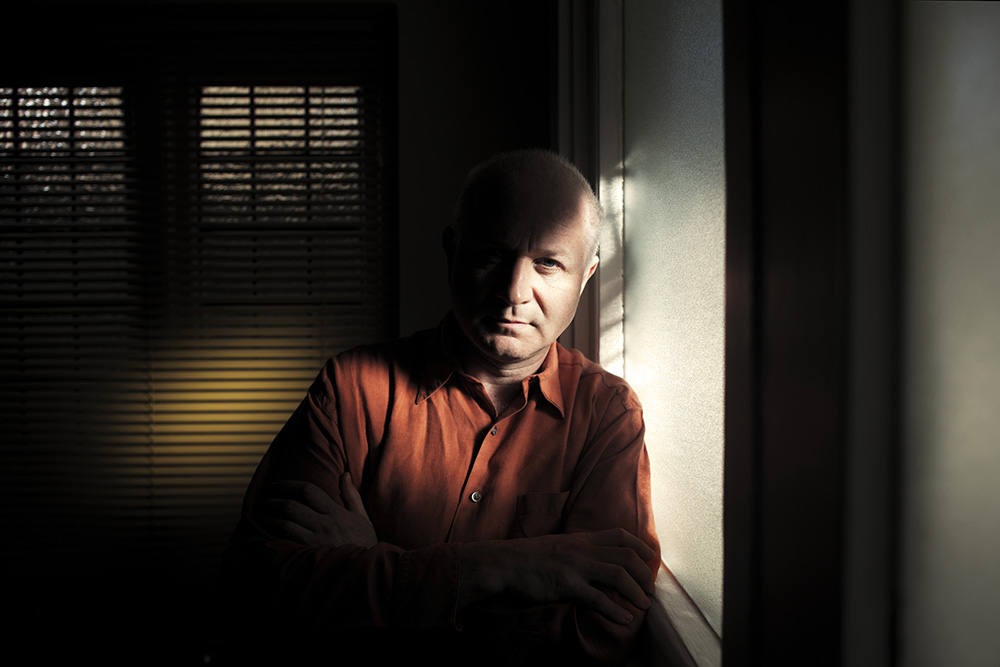
Ensemble Modern has been defining trends on the contemporary music scene for decades now. The British newspaper The Guardian described them as “Frankfurt-based musicians, who for their versatility and virtuosity have few peers among Europe’s specialist contemporary music groups”. The ensemble was founded in Frankfurt in 1980; today its core consists of eighteen soloists from Belgium, Bulgaria, Germany, Greece, India, Japan, Switzerland and the USA. Each year members of the ensemble study around seventy new works, approximately twenty of which will then be given their world premieres. Typically open to all manner of genres, Ensemble Modern also includes in its programmes music theatre productions, dance performances and multimedia projects. With an extended players’ list the ensemble’s members also perform symphonic works under the name Ensemble Modern Orchestra. Over the decades since they were established they have cultivated close relationships with leading contemporary composers, among them Unsuk Chin, Olga Neuwirth, Heiner Goebbels, Helmut Lachenmann, Karlheinz Stockhausen, Wolfgang Rihm and Steve Reich. Their recordings of these composers’ works, which Ensemble Modern also releases on its own label, are considered referential. In addition to concerts presented as part of its own subscription series at Frankfurt’s Alte Oper, the ensemble is a regular guest at prestigious festivals and concert venues, including Festival d’Aix-en-Provence, Berliner Festspiele, Holland Festival, London’s Wigmore Hall and South Bank Centre and New York’s Carnegie Hall. In 2003 they launched the International Ensemble Modern Academy, which provides opportunities for all kinds of educational projects, with the aim of sharing and mediating the latest artistic movements in various formats. The Academy offers, for instance, a master’s programme in contemporary music performance at the Hochschule für Musik und Darstellende Kunst in Frankfurt, international composers’ and conductors’ seminars, and educational projects for children and teenagers.
